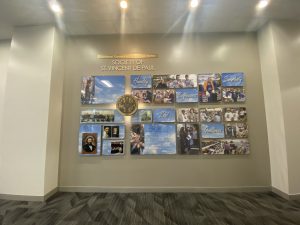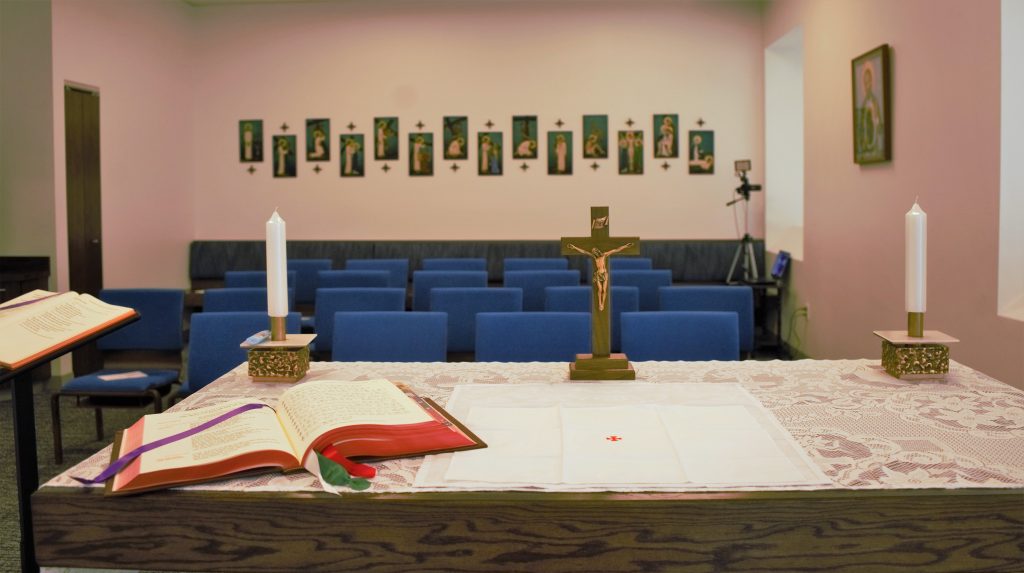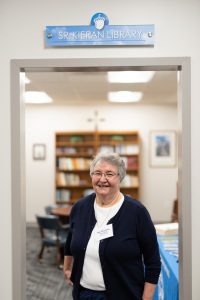In 2018, a list of Cultural Beliefs was added to our Rule, better defining for us the commitments we make in this vocation. Among them is the commitment to “contribute to the success of our Vincentian work when we support One Society.” [Rule, Part III, Statue 2] Although only added to the text of the Rule in recent years, this ideal of solidarity was dear to our founder, Blessed Frédéric Ozanam.
As it has always been, the work of the Society is done by individual members, visiting in pairs to serve the poor in their neighborhoods, and meeting and praying frequently with their local Conferences. With respect for the principle of subsidiarity, Conferences, within the limits of the Rule, govern themselves. It would be quite possible, if you chose, to go a very long time without so much as being aware of any Vincentians from other Conferences. But we are called to choose otherwise!
Even without seeing one another, “what magic there is in words from afar and in the approbation of so great a number of friends,” Frédéric wrote, likening the bonds between Conferences to the living and life-giving bonds between conjoined twins. [Letter 169, to Lallier, 1838] Celebrating a local success in Paris, he was quick to add that “our moral strength…comes from other conferences in Paris and the provinces. This solidarity raises us in the eyes of the world at the same time that it gives us confidence.” [Letter 173, to Lallier, 1838]
Each new member, each new Conference, immediately inherits 188 years of tradition, becomes part of a network of charity spanning the globe in 152 countries, on all five continents. Each Conference, with its local character and concerns, enriches and is enriched by the greater whole. That is why Frédéric cautioned that the Society’s growth is not important without “unity in proportion as the circle widens, each of its points connected with the center by unbroken spokes.” [Letter 137, to Janmot, 1837]
This unity, this solidarity, is the reason we have District, Diocesan, and National Councils, it is the reason we have an annual National Assembly, and the reason we celebrate Vincentian Feast Days together. Following one such celebration, Frédéric marveled that “at the same hour, thirty other conferences established in the farthest removed sections of the country celebrated the same solemnity. How can there not be given some hope to such a strength of association?” [Letter 310, to Amelie, 1841]
As we seek to serve Christ in the person of the poor, we constantly bless and are blessed by our fellow Vincentians, assuring each other “that we are not alone, and that our works and prayers are surrounded with much better works and prayers, which protect them against corruption from without and draws upon them the blessing of heaven.” [Letter 165, to Bailly, 1837]
Contemplate:
Do I meet with members from other Conferences, and remember them in my prayers?






 True to the Vincentian value of prudence, the National Council did not use any dollars from member services to purchase the new building, which was funded through the sale of our old building and judicious savings of bequest funds over time. “Our most loyal donors contributed mightily to this day. We thank them,” Middlecamp said.
True to the Vincentian value of prudence, the National Council did not use any dollars from member services to purchase the new building, which was funded through the sale of our old building and judicious savings of bequest funds over time. “Our most loyal donors contributed mightily to this day. We thank them,” Middlecamp said.